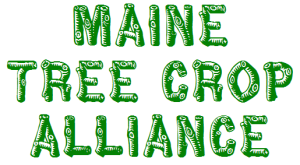How to use the MTCA website (and how to find stuff here)
We have a lot of content here, and quite some effort has been put into keeping it organized in a way that will make getting to it as easy as possible for you. With that in mind, we have provided these three basic ways of finding out if what you are looking for is indeed here.
- Use the menus in the green bar near the top of the page. Each menu item is a broad category of information, and each pulls down to reveal sub-categories to help you get closer to what you are looking for. Note that as you scroll down any page, the menu remains in place at the top or your screen, allowing you to use it wherever you are on any page. You can also . . .
- Search for it. To the right of the green menu bar is the search gadget. Enter any terms here and you’ll get a list of pages that contain those terms. Choose any that seem to be close to what you want. You can also . . .
- Pick a subject or a category. In the side bar on the right is a collection of green “subject tags” with the number of articles we currently have pertaining to that subject. Click on any of them to get a list of those articles. Below that is a list of categories which are broader than single subjects, and which also provide a list of articles in that category. In a way the Subject tags and Categories are like pre-defined searches that display the links to articles filling that bill.
How the menu is organized.
[As the volume of articles referenced on this website grows, occasional reorganization of the site may happen in an effort to better present our content to the reader.]
Fruit Exploring .
Articles by Jack Kertesz and others about the art and joy of exploring deep woods, roadsides, and ancient farmland for forgotten or undiscovered specimens with outstanding qualities. Includes highlights of some discoveries.
Maine Tree Crop Alliance’s Newsletter Archive
(1983–1991) and (2019– ) At first the newsletter was typewritten, then desktop published, and today it has emerged as a pdf. Please be aware that phone numbers and addresses appearing in the older newsletters may have changed in the thirty-odd years since the first of them was published. This newsletter of sharing information is how the MTCA began.
Tours and Visits
Stories and photos from tours of the lands of tree crop enthusiasts.
Publications
Digital versions of printed matter we’ve discovered (or written!) about various details of tree cropping.
Web Resources
Suggested links to other places we’ve discovered (categories: online articles and publications, web links, innovative ideas, etc.). Includes pages on specific topics, such as pollinators, pests, RCW, and tools.
Events
Occasional, regular or one-time events of interest to our community. Includes such happenings as the main Scion Exchange as well as its southern Maine versions, the New England Acorn Festival, Fedco Trees Sale, Great Maine Apple Day, and others.
Crops
Divided into fruit and nut specialties, with perhaps more being added if and when appropriate.
What “Tree Crops” don’t we cover?
There are many “crops” obtainable from woody plants that the MTCA website does not cover, and some we cover only lightly since some crops, such as apples or maple syrup, already have a mature information infrastructure. Although many of us are deeply invested in one or more uses of woodlands tree crops some of these are simply beyond the scope of this endeavor. A few of the topics and activities we typically have found to be off our common path include:
- Firewood harvesting and use.
- Foraging and wild crafting mushrooms and non-woody woodland plants.
- Maple Sugaring.
- Brown Ash harvesting for basketry.
- Canoe making, boat building, or carpentry.
- Industrial uses of trees or actions resulting in their wholesale removal.
- Crops not adapted to the temperate climate in Maine.
- Tipping for wreath making.
- Crops from non-woody plants.
Our Focus: Trees, Shrubs, and Woody Vines.
Limiting our focus to these types of plants still leaves us with an enormous bounty of unexplored and under utilized niche possibilities for food production based on developing a perennial local agriculture rather than relying solely on an annual one.

